James Joyce is famously quoted as writing: “Catholic means ‘Here comes everybody.’ ” While that may have been the case in Ireland in the 1930s when Finnegans Wake was published, it doesn’t feel quite so apt these days.
I walk into a Catholic Mass while on vacation and immediately see that social distancing will be easy as the pews are barely half-full. I read research on the religious beliefs and practices of people in our current era and see sobering statistics on church flight. I tell inquiring strangers while making small talk that I work for the Catholic Church and am more often greeted with a wince than with any form of curiosity.
With all due respect to Joyce, “here comes nobody” feels more accurate.
In a way, this isn’t surprising to me. I see the flaws of the Catholic Church—the sexism and homophobia, the failure to own its sins and apologize, the patriarchal and exclusive leadership model—and understand why people leave. It doesn’t feel like a healthy, let alone desirable, place to be for many people.
Yet, there is a group of Catholics who don’t want to leave. Even as they see the institution’s inadequacies and know that one or more aspect of their identity prevents them from being fully accepted by the church, no other place feels like their spiritual home.
The question for this group isn’t “Should we leave?” but rather “Why and how do we stay?”
Here are four stories of people living in those questions.
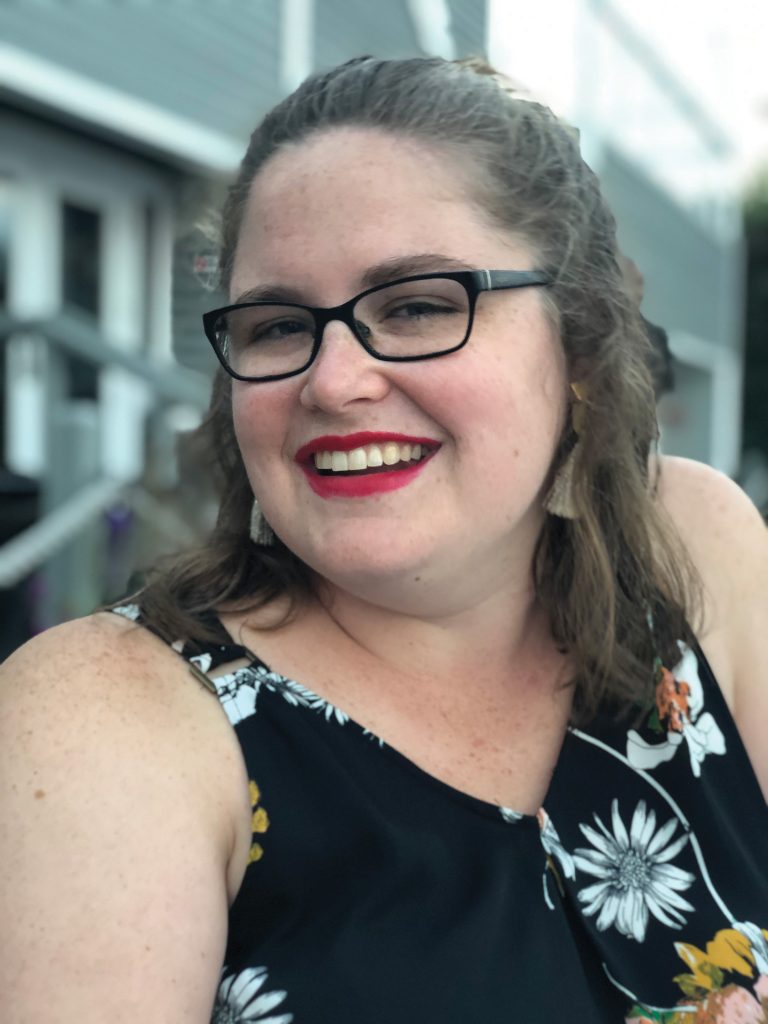
Allison Connelly-Vetter
On the one hand, Allison Connelly-Vetter’s wedding was about the most Catholic ceremony I’ve ever attended. It was apparent that she and her spouse hadn’t just checked the pre-Cana box to appease Great-Aunt Mildred but had made deliberate and considered liturgical choices, complete with personally written prayers of the faithful and folksy music from their childhood Masses—songs by the St. Louis Jesuits that all the siblings could sing along to without looking at the words.
On the other hand, the wedding wasn’t Roman Catholic at all. While the liturgy of the Word, the liturgy of the Eucharist, and the rite of matrimony seemed straight from the Roman Missal, Connelly-Vetter, a woman, was marrying Brooklyn, another woman.
Their wedding was joyful and invigorating—a truly Spirit-filled day—but not being able to get married in a canonically recognized service was a loss for the couple.
“We deeply wanted to get married in the Catholic Church,” Connelly-Vetter tells me.
For them, the homophobia of the church—a stance that Connelly-Vetter refers to as a “lie about the possibility of human diversity”—isn’t just theologically and socially troubling. It also has practical implications for the young couple, both now and in the future: It means they couldn’t have a Catholic wedding. It means their children will be limited in their ability to receive the sacraments. It constrains Connelly-Vetter’s vocational calling in ministry.
These are neither insignificant hurts nor small sacrifices.
But Connelly-Vetter isn’t about to leave the church because, for starters, her Catholicism isn’t a country club membership.
“Being Catholic is not something that I do or participate in,” she says. “It’s something that I am.”
Her Catholic identity has deep roots. Even before Connelly-Vetter worked in faith formation at a lay-led Catholic community, even before she graduated with a master’s degree in divinity from Union Theological Seminary in New York City, even before she met her spouse while participating in a service year with the Sisters of St. Joseph of Carondelet, her upbringing was steeped in Catholicity. Alongside discussing the Mass readings and praying the rosary together each day, the Connelly family culture was rooted in the values of service and justice, with civic engagement being a natural outpouring of their Catholic faith.
Take this parallel, for instance: Connelly-Vetter’s maternal grandmother was an active member on both her parish’s pastoral council and the City Council of Washington, D.C. Now, generations later, Connelly-Vetter’s political and religious engagement are intertwined, as she works within sacred and secular circles to advocate for prison abolition and economic, racial, and disability justice.
With roots like these, as well as an ongoing appreciation for the rituals, sacraments, and traditions of Catholicism and the perspective and grounding that these “old and true” aspects of the church provide her, Connelly-Vetter has managed to alchemize her sense of loss and hurt into solidarity and accountability.
“Because I have been formed by this institution, I feel accountable to this institution and to other people to work for the transformation of this institution,” she says.
Transformation, for Connelly-Vetter, includes honoring the experience of every human being as valid and sacred, following the ways of the nonviolent and justice-seeking Jesus, and giving individuals and communities inroads into their own identities.
“If we take seriously that every person, no matter their ordination status or age or marital status, is a meaningful and important reflection of the divine and that we all have equally important things to say about who God is and what it means to live an ethical life, the church would be entirely different,” she says.
With this vision, with this sense that her Catholicism cannot be stripped from her, and with her love for the richness of her tradition, Connelly-Vetter is here to stay.
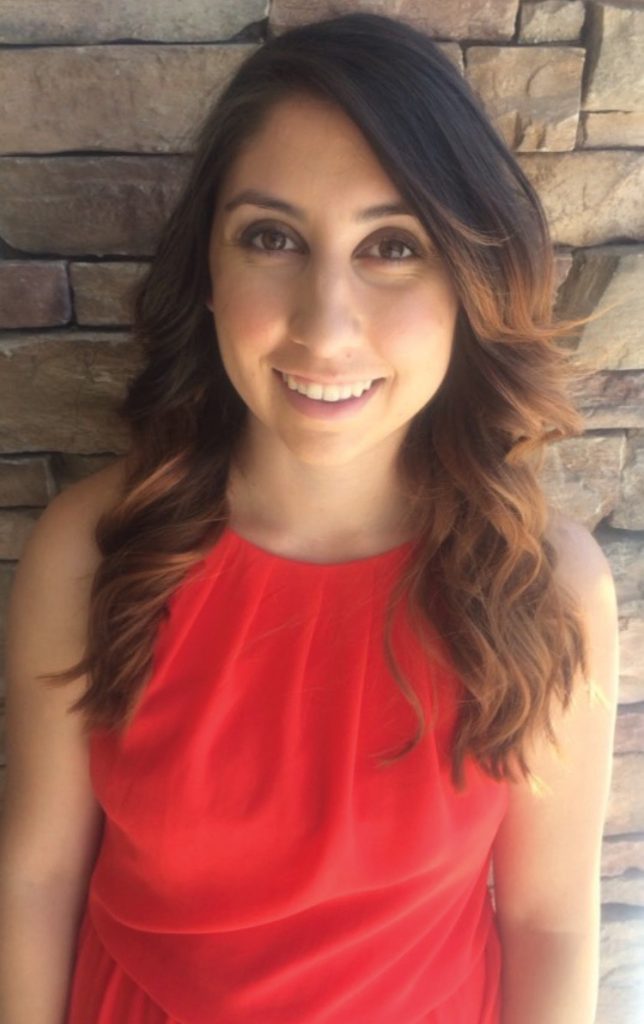
Bri Mercadante
Bri Mercadante isn’t someone who takes herself too seriously.
A program director at a medication-assisted treatment center for substance use, the mother of 9-year-old twin boys, and a graduate student at Columbia University’s School of Social Work, Mercadante doesn’t have a lot of spare time on her hands. Yet she takes a break to talk with me one Sunday afternoon.
Mercadante is both Catholic and Indigenous (her maternal side of the family is from the Southern Ute Indian tribe), identities that, to many people, may seem to compete. It’s true that the history of the Catholic Church’s relationship with the U.S. Tribal Nations isn’t a pure one. As early as the 17th century, Jesuit missionaries in North America participated in the cultural genocide of Indigenous peoples as they forced religious and cultural assimilation in the name of “saving souls.” And throughout the mid-20th century, the Catholic Church partnered with the U.S. government to run boarding schools where Indigenous children—often after being forcibly taken from their families—were beaten, starved, neglected while sick, and otherwise abused.
But Mercadante, even as she acknowledges the awful history, isn’t particularly weighed down by it. Rather than belaboring the church’s past, she is much more interested in considering how her identities intersect in meaningful and life-giving—if at times somewhat baffling—ways.
For instance, Mercadante tells me the story of bringing her old boyfriend, a Mormon, to her uncle’s Catholic–Indigenous funeral a few years back. He was so confused, she recalls with a chuckle, and she could hardly blame him.
“A lot was going on: There’s a priest and the Our Father, but there’s also a guy with a flute, some butterflies that show up that everyone is excited about, and sage,” she laughingly recounts. For her, the melding of her Catholic and Indigenous roots at a time of crisis was both comforting and energizing.
Mercadante shares another example of her refusal to take herself too seriously, one that illustrates how she—a progressive, feminist, justice-seeking, social worker in training—stays Catholic when so many people with those same identities are quick to leave: She doesn’t overly concern herself with the rules or restrictive teachings of the Catholic Church. Instead, her faith is oriented around a simple guiding question: What would Jesus actually do?
“Some people would take that as very old-school,” she says. “But I see it as an evolving form of Catholicism. If Jesus were alive today, as a person, would he welcome the foreign neighbor? The gay neighbor? Would he wash the feet of the sex workers?”
For Mercadante, the answer is a resounding yes.
Every day, as she enters her office, she recites the Prayer of St. Francis, which to her is all about selflessness and being of service to others.
“It’s the greatest prayer,” she says. “When I get into work I think, that’s what I’m here to do today. I’m here to be of service to others. It helps me be a better social worker, a better advocate. That’s essentially what Jesus was, an advocate for others.”
In Mercadante’s understanding, being a person of faith isn’t about agreeing with all the teachings of the church or making sense of its complicated history. It’s about following the model of Jesus.
And as she says, “Jesus broke rules and broke the laws. He was a reformer.”
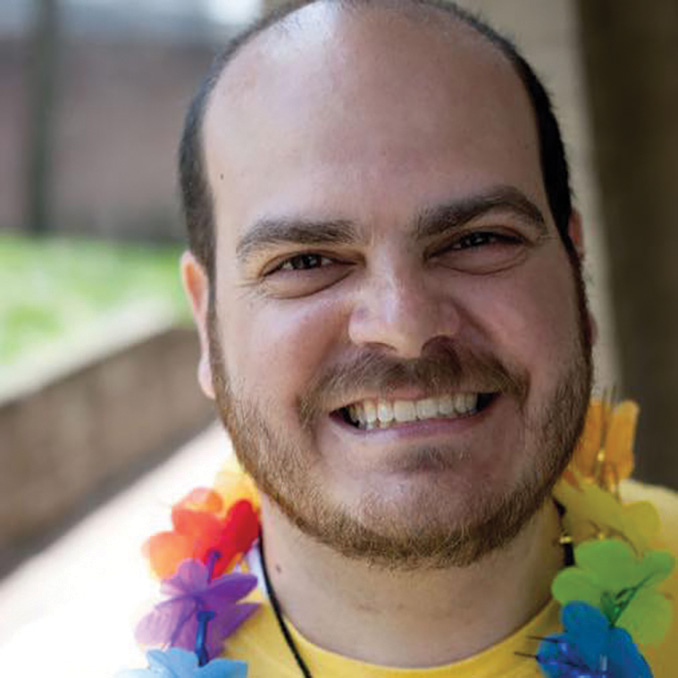
delfin bautista
By age 13, delfin bautista felt called to the priesthood, so while their peers spent middle school and high school going on dates and in relationships with one another, bautista’s self-described “form of dating” was becoming acquainted with various religious communities.
“I did a process with the Franciscans, with the diocesan seminary, and with the Legionaries of Christ,” they say. “Then I did ultimately enter the seminary with the Jesuits in the Dominican Republic.”
They didn’t last long in the seminary, however, because something shifted within them during their first-year silent retreat.
“When you are in silence for a month, things tend to come out in more ways than one. Questions that I did not want to deal with in terms of my sexuality, in terms of my gender, in terms of my place within the Catholic world, came up very loudly.”
bautista came out during their retreat, and while they received support and affirmation from their spiritual director, they ultimately decided to leave the seminary.
“St. Ignatius [of Loyola] in his teachings talks about serving God with all of who you are, wherever it is that you are, and I thought that I couldn’t do that there,” bautista says.
Leaving the seminary—and coming out—was not without consequences for them. Returning to the conservative, Latino/a household in which they were raised, bautista was sent to reparative therapy by their family. (“It didn’t work,” bautista deadpans, though eventually their family came around to accepting and embracing them for who they are.) After being kicked out of Catholic groups that they had formerly been a part of, they began to have a rocky relationship with the Catholic Church.
The call to priesthood was still there, however. So, after completing bachelor’s and master’s degrees in social work, bautista enrolled at Yale Divinity School with the intent of pursuing ordination through the Episcopal Church.
Once again, however, their journey took a turn.
In what bautista describes as a “born-again Catholic experience,” they, for the first time, discovered queer, feminist, and liberation theologians of color, “sides of Catholicism that I didn’t know existed.” This was game-changing.
As they became acquainted with what they refer to as “alternative ways of doing liturgy that are Catholic but that are either just pushed to the side, practiced in intentional communities, or [practiced in] smaller communities but not necessarily a part of the mainstream Catholic narrative,” their goal shifted. “I finished my master of divinity degree as a [Catholic] layperson wanting to explore ministry outside of a congregation.”
At the time of our conversation, bautista is living in an intentional community—formerly a Catholic Worker house, though now the home is owned by Call To Action, a progressive Catholic organization focused on providing support to queer and trans activists working on issues around food solidarity, sustainability, water protection, and economic justice. They recently started a new professional role as the director of the LGBTQ center at the University of California–Santa Cruz, and they are involved with DignityUSA, Soulforce, enfleshed, and Queer Christian Fellowship.
In their words, “I’m just finding ways to bridge social justice, religion, theology, queerness, transness, and being Latinx. I’m bringing all these things together through education, through my work as a director of an LGBTQ center, through my writing, and through as many different ways as I can.”
bautista doesn’t attend Mass these days, explaining that they don’t feel comfortable going as a trans person.
“The church doesn’t have any official teachings on us, so we don’t exist,” bautista says. “The statements that the Vatican has made about trans people are not the most uplifting, so I do feel invisible and don’t feel welcome in those spaces. At the same time, I do miss and crave it.”
The missing and craving have led them to explore alternative Catholic spaces and cocreate spiritual community and communion.
“Yes, there is the sacrament of communion, but sometimes sitting in a circle and sharing coming out stories is a form of communion for me. That is very much the body of Christ present,” they say.
bautista tells the story of leading a queer delegation to World Youth Day and describes the church community that formed within their group and with folks whom they encountered from countries around the world.
“Just to be in conversation with other queer and trans Catholics and allies who were craving these conversations, and who cleaned us out of all our rainbow rosaries and the literature we had, was a reminder that the Spirit is moving and that we are not alone,” bautista says.
In the years that have passed since they came out and embraced their identities as a queer and trans person, their sense of what it means to be Catholic has expanded.
“It’s not about who can out-kneel the other person during adoration, or who can recite all 20 mysteries of the rosary. Those things are important but don’t define us as Catholic,” bautista says. “If we look to our history, there is a very strong community and communion of folks who questioned the church. At the time, they were labeled heretics but are now seen as saints and holy people. [Being Catholic] is living into our faith on our terms and being able to really experience God in God’s awesomeness, as well as recognizing that we are limited but that God is much more expansive than the boxes we have put God into.”
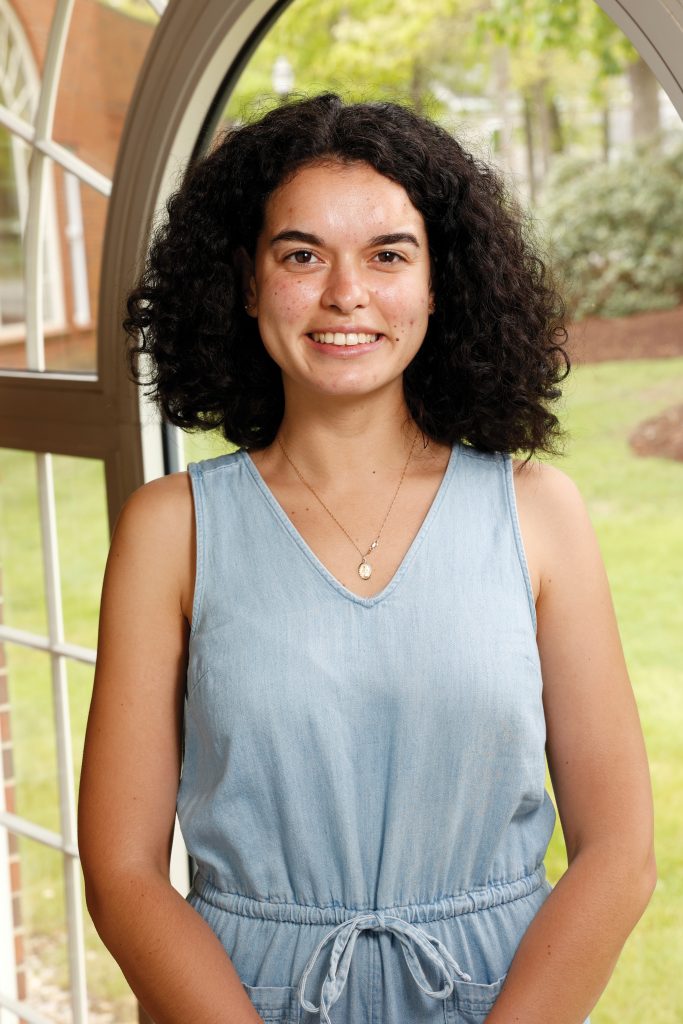
Ana Morrison
Community may not be the orienting principle of Ana Morrison’s life, but it is certainly one of them. It is the magnetic center of our conversation together.
It makes sense that community is on this 22-year-old’s mind. Having graduated from Saint Anselm College in Manchester, New Hampshire last May with a bachelor’s degree in biochemistry and molecular biology, Morrison is currently completing a master’s degree in community engagement at Merrimack College in North Andover, Massachusetts.
The program, Morrison explains, builds upon the work that she began in college: teaching, tutoring, and building relationships with local high school students from underrepresented and minoritized backgrounds through Saint Anselm’s Meelia Center of Community Engagement.
“Whatever was going on in the center, I wanted the chance to be a part of it, to get to know the community better,” she says.
Her passion for community isn’t just influencing her professional future. It also plays a significant role in how she understands her Catholic faith.
Morrison was raised Catholic and throughout her life regularly attended Mass and other events at her parish “as a way to get to know the community better,” she says.
A sense of community continues to keep her drawn into the church today.
She tells the story of recently attending Mass with her parents and sitting behind a woman with four little boys whose husband travels for work for long stretches of time: “At one point [the woman] turned around because one of the babies was being fussy and just handed my mother one of them.”
This, to her, is community. It’s what makes the church feel like home.
Of course, not all Catholic institutions give off these same vibes, Morrison recognizes. To her, that’s a major turn off from the church. Attending a Catholic college, she expected to get involved with campus ministry, but what she discovered was a flavor of Catholicism that was “very traditional and very rigid,” one with which she wasn’t comfortable.
But even as she leaned away from organized Catholic student life while on campus, she deepened her personal sense of Catholic identity. She tells me about an experience in a philosophy class that she describes as the “only time I got into a fight with a professor.” The argument had to do with the morality of contraception. Although this is the sort of issue that turns people away from the church, the argument for Morrison was instead fodder for reflection.
She recalls, “I don’t agree with this man who is yelling at me and telling me that contraceptive pills are evil, and I still consider myself Catholic in the same way that he does. It’s really allowed me to reflect and see that [being Catholic] is not one thing.”
It’s no secret that young adults are exiting the church—and organized religion, more broadly—in droves. When I ask Morrison what she makes of this, she shares her suspicion that it has to do with people’s understanding of what it means to be Catholic.
“From conversations with friends and family members, a lot of them really believe that if you are going to be someone who goes to church and follows organized religion, you have to meet x, y, and z criteria, otherwise you’re hypocritical. I think it’s so much more complicated than that. It’s not a black-and-white, you-are-or-you-aren’t situation. It means a million and one things to be Catholic,” she says.
This sense that the Catholic Church is large, diverse, and big enough to hold all kinds of Catholics keeps Morrison grounded. She knows that she belongs and that both she and the church have something to gain from her belonging.
“I honestly think that if younger people especially had the opportunity to realize that, as much as this is a very established religion, it’s also what it means to you, there would be so many more people who would be open to considering how it can play a role in their life,” she says.
This article also appears in the February 2023 issue of U.S. Catholic (Vol. 88, No. 2, pages 20-25). Click here to subscribe to the magazine.
Image: Unsplash/Jason Briscoe


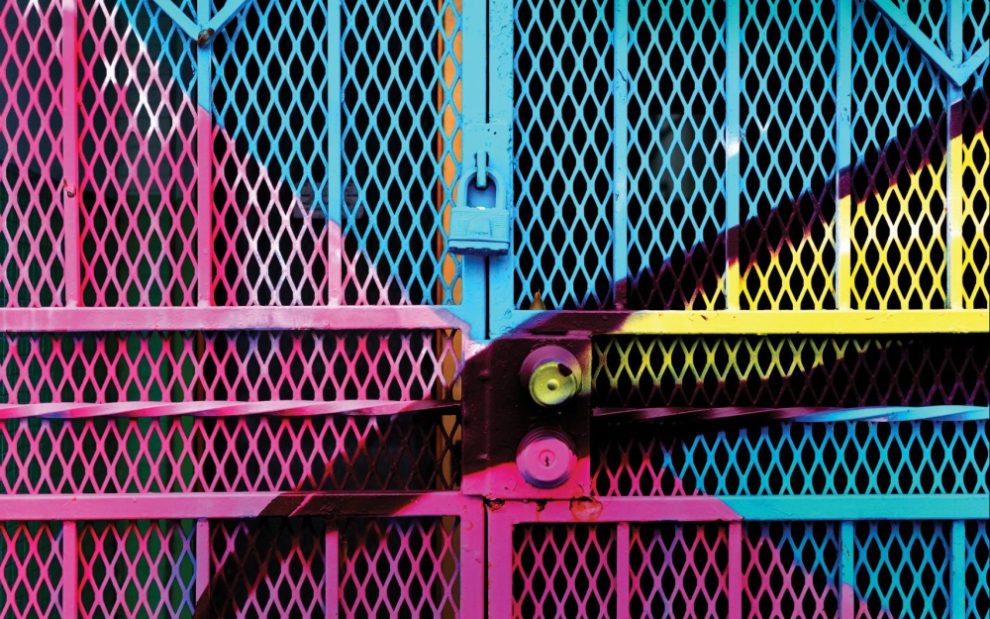



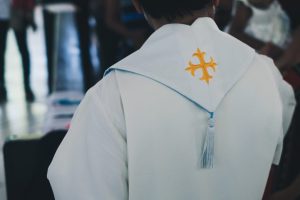
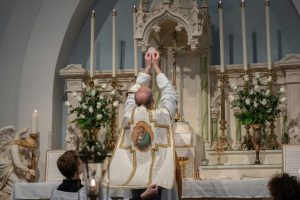
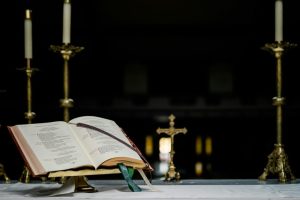





Add comment